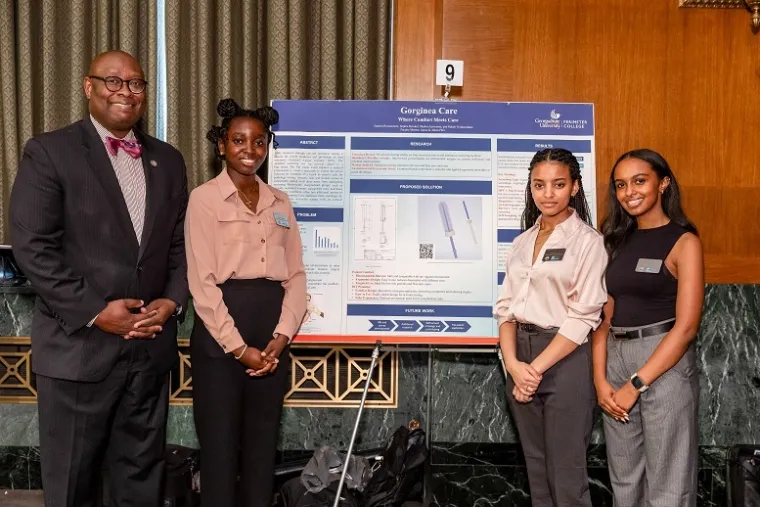Winners announced for the Community College Innovation ChallengeLearn more about the winners of the annual Community College Innovation Challenge, co-sponsored by the American Association of Community Colleges and NSF. Dr. Moore, EDU's AD, says that “the student participants represent both the present and future of STEM by addressing some of the most pressing challenges of our times." Participating teams went through a weeklong boot camp to fine tune their projects, give pitches to potential investors and more. 
Tune In: Engaging postdocs through REEDS Tune in to episode 13 of “The Inquiry Oasis,” featuring PI Heather Haeger and cohorts from the Research on Educational Equity and Diversity in STEM (REEDS) Fellowship Program at the University of Arizona. The episode shares the experiences of four postdoctoral scholars at the half-point of their awards. The goal of this program is to provide postdoctoral students with opportunities to engage with STEM educational practices within the context of a research-intensive Hispanic-Serving Institutions. 
Ferris State University adds automotive engineering associate's programStudents at Ferris State University will soon be able to earn an Associate of Applied Science degree in Sustainable Transportation Service Technology through the college's School of Automotive and Heavy Equipment programs. Researchers plan to use new funding to enhance the reach of the existing programs by acquiring testing equipment and developing curriculum for the school's degree and certificate programs. Learn more here.
Harding University works to train future STEM educatorsHarding University in Arkansas plans to develop a STEM teacher recruitment program to help alleviate the critical need for K-12 STEM teachers in the state. Researchers will focus on undergrads committed to teaching STEM in local schools. Learn more here. Enhancing success for underrepresented students at Catholic universitiesLearn how researchers at Molloy University plan to collaborate with seven Catholic universities to support underrepresented minority students in STEM. The project's framework is based on intersectionality and a sense of belonging, and through it, researchers hope that students will be more prepared to face systemic and institutional barriers that are specific to underrepresented groups. The findings from the project will also be shared with broader communities to help enhance the success of underrepresented students in STEM. |
|
EDU Divisions
Division of Graduate Education (DGE)
DGE enables and inspires an inclusive, equitable, and globally competitive U.S. STEM workforce by supporting students, research, scholarship, and innovations in graduate education.
Equity for Excellence in STEM (EES)
EES promotes activities that strengthen STEM education for underserved communities, broaden their participation in the workforce, and increase knowledge about promoting inclusion. (EES was formerly the Division of Human Resource Development.)
Division of Undergraduate Education (DUE)
DUE focuses on strengthening STEM education at two- and four-year institutions by improving curricula, instruction, laboratories, infrastructure, assessment, diversity of students and faculty, and collaborations.
Research on Learning in Formal and Informal Settings (DRL)
DRL seeks to improve STEM learning for people of all ages by promoting innovative research, development, and evaluation of learning and teaching across all STEM disciplines in formal and informal learning settings.






